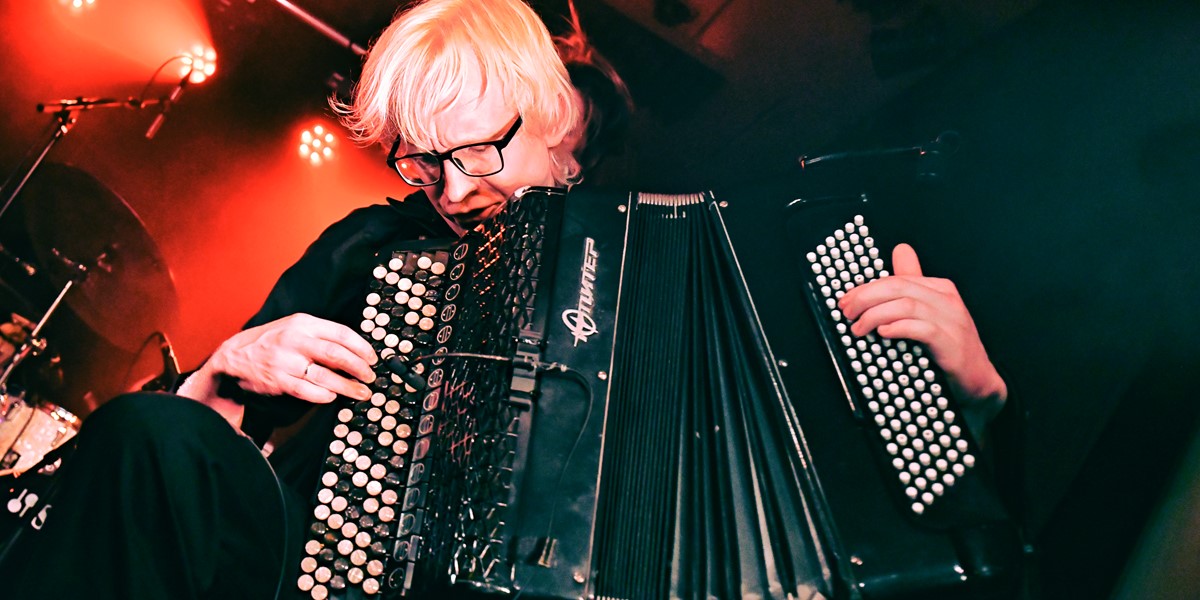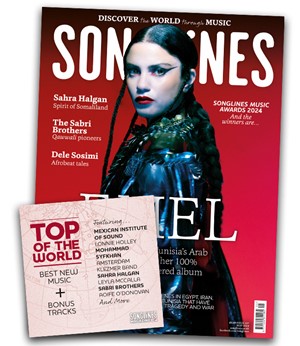Tuesday, December 13, 2022
Aliaksandr Yasinski interview: “Blind players were going from village to village like prophets”
The Belarusian accordionist tells us how he is seeking to revolutionise the instrument's image with his debut album

©Patrick Marek
Coming from Belarus, but living in Prague since 2011, Aliaksandr Yasinski is a formidable accordion player dedicated to developing the instrument’s range. “The accordion is always underrated,” he complains. “Professional musicians – violinists and pianists – won’t let you into their elite club. For them you are someone playing old-fart polkas on an instrument with a piercing sound. We accordion players need to establish our instrument and show it can be used in serious music, to experiment with it and be among them, whether it’s in classical or nonclassical music.”
Yasinski was born into a family of doctors, but his father played accordion and encouraged his musical interests. Though he left Belarus for political reasons, Yasinski has nothing but praise for the musical education he received there, first in Baranavichy and then in the capital Minsk. “When studying accordion, you always have to play traditional compositions, though they are arranged in a professional way. It wasn’t like going out on deep field-recording expeditions, but even being trained as a classical musician, there was this connection to the tradition because it goes through the department of traditional music.” He studied at the Lyceum associated with the Belarus State Academy of Music, then at the Academy itself, the Prague Conservatoire and, finally, the Academy of Performing Arts in Prague. “Of these, the first one was absolutely the best – with the most professional teachers and most talented pupils,” he says.
On his debut solo album, Hlybini, he admits there aren’t many traditional pieces. The most Belarusian-sounding is ‘Song of the Old Hurdy-Gurdy Player’. “It’s my melody, but in the style of traditional music. The lira [hurdy-gurdy] was played in our country since the Middle Ages and blind players [lirniki] were going from village to village like prophets.” Perhaps the most personal track is the title-track ‘Hlybini’ (Depths), which begins with a growling drone and then develops into a series of strongly rhythmic outbursts growing in intensity. “I miss something deep that I left in my own country: my family, my friends, the nature and the landscapes. Your roots that won’t let you go, but to which are no longer connected. It’s quite complicated.”
In Russian and Belarusian the word akkordeon means piano accordion, while the button accordion Yasinski plays is called bayan. “Its unique layout of buttons allows musicians to play faster and get wider chords than on the piano accordion – very attractive for players like me who want to find new musical languages. I also use a technique [on ‘Hlybini’] called ‘bellow shake,’ it’s when you quickly change the direction of the bellows. It’s not easy to play for long, but it gives some dynamic changes.”
On one of the most experimental tracks, ‘100 vs 1’, a solo line is juxtaposed with up to 100 layered accordions and percussive tapping on the instrument. “I wanted to compare one monophonic melody against this huge ensemble, sometimes chaotic and unpleasant, sometimes peaceful. It’s not so much a musical composition, more a soundscape.”
Yasinski also works with a number of bands, including Shum Davar, a Balkan and klezmer band. ‘Spell’, one of the album’s standout tracks, was written for them, here in an arrangement for solo accordion. “In my hometown there was a huge Jewish population before World War II. Every time we play it, we dedicate it to them and to the people who fight against the dictatorship in Belarus. ‘Storm’ is also about people fighting with the system and wanting to live in a different country with freedom, but they cannot.”
Read the review of Aliaksandr Yasinski’s Hlybini
This interview originally appeared in the December 2022 issue of Songlines. Never miss an issue – subscribe today

